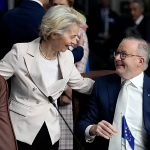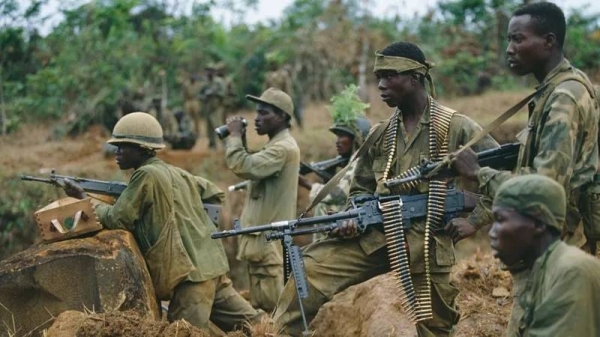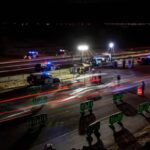Liberian President Joseph Boakai recently signed an executive order to establish the country’s first war crimes court, more than 20 years after the end of two civil wars that claimed 250,000 lives. The conflicts, which took place between 1989-2003, involved mass killings, rape, and the forced recruitment of child soldiers. Despite opposition from critics who fear that the court may reopen old wounds, Boakai believes that the establishment of the court will help bring about justice and healing by uncovering the causes and effects of the violence.
Adama K Dempster, a lead campaigner for the war crimes court in Liberia, praised Boakai for his decision, stating that it will bring closure to many war victims and survivors. International allies, including the US, have also expressed their support for the initiative. US Chargé d’Affaires in Liberia, Catherine Rodriguez, commended Boakai for taking a “historic and courageous step” towards seeking justice and accountability for the atrocities committed during the conflicts. She expressed optimism that the court will help end impunity for war and economic crimes while promoting national reconciliation and sustainable peace.
The establishment of a war crimes court in Liberia marks a significant milestone in the country’s pursuit of justice. While a Truth and Reconciliation Commission (TRC) was set up in 2006 by former President Ellen Johnson Sirleaf, it was not a tribunal. The TRC identified individuals to be prosecuted for war crimes in 2009, including sitting politicians like Senator Prince Yormie Johnson, but no actions were taken. Despite no trials taking place in Liberia, some perpetrators have been convicted in other countries, including former President Charles Taylor, who is currently serving a 50-year sentence for war crimes in the UK related to the conflict in Sierra Leone.
The decision to establish a war crimes court in Liberia has been met with mixed reactions, with critics raising concerns about the potential consequences of reopening old wounds. However, Boakai believes that the court is necessary to address the lingering effects of the civil wars and bring about closure for war victims and survivors. The move has been praised by international allies, including the US, who have expressed their support for the initiative. US Chargé d’Affaires in Liberia, Catherine Rodriguez, commended Boakai for his “historic and courageous step” in seeking justice and accountability for the atrocities committed during the conflicts.
The establishment of a war crimes court in Liberia is a significant step towards achieving justice and accountability for the atrocities committed during the country’s civil wars. The decision has been met with praise from supporters who believe that it will bring closure for war victims and survivors. While the move has faced opposition from critics who fear that it may reopen old wounds, Boakai remains committed to ensuring that the court helps uncover the causes and effects of the violence and promotes national reconciliation and sustainable peace. International allies, including the US, have shown their support for the initiative, expressing optimism that the court will help end impunity for war and economic crimes in Liberia.
The signing of the executive order by Liberian President Joseph Boakai to establish the country’s first war crimes court represents a significant milestone in the country’s quest for justice and accountability. The decision comes more than 20 years after the end of two civil wars that claimed the lives of 250,000 people and involved atrocities such as mass killings, rape, and the forced recruitment of child soldiers. While some critics have opposed the creation of the court, citing concerns about potentially reopening old wounds, Boakai believes that it is essential for uncovering the causes and effects of the violence and bringing about justice and healing for war victims and survivors. International allies, including the US, have welcomed the move and expressed their support for the court, with US Chargé d’Affaires in Liberia, Catherine Rodriguez, commending Boakai for his “historic and courageous step” in seeking justice and accountability for the atrocities committed during the conflicts.









